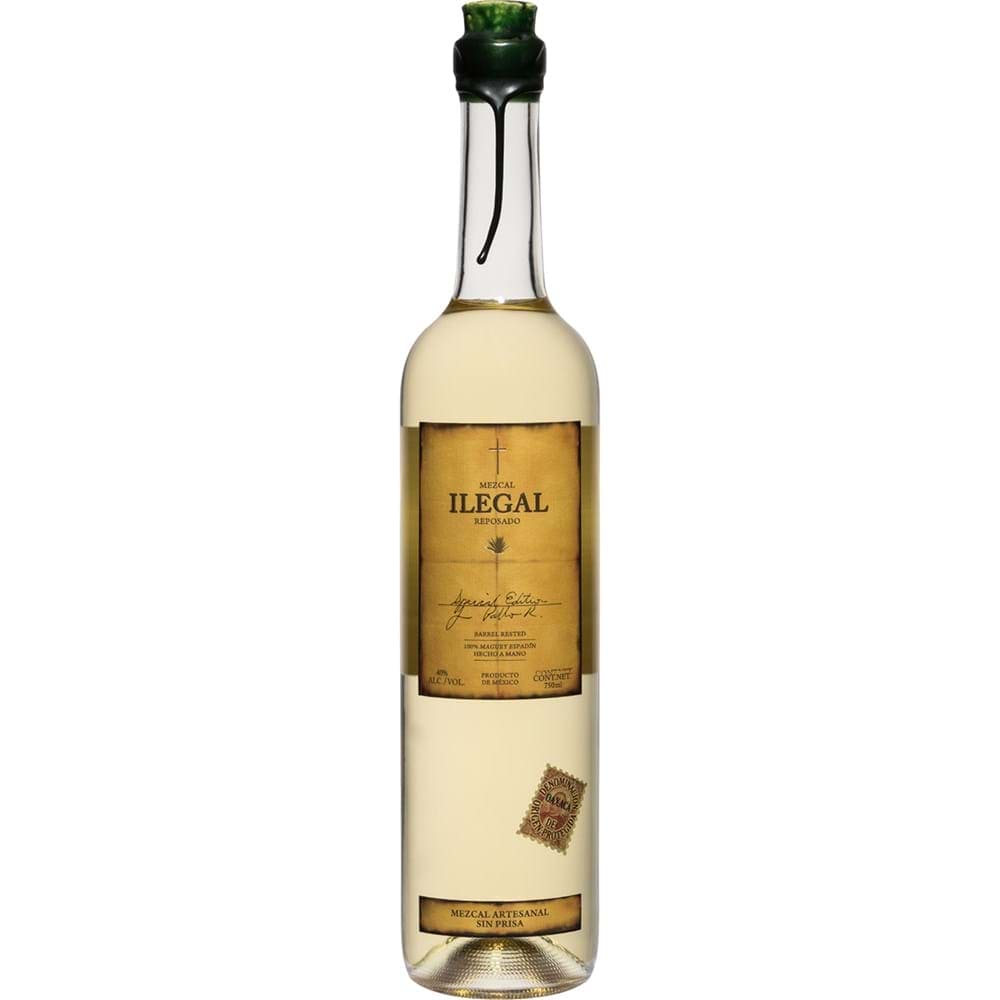
Ilegal Reposado Mezcal
Experience the Exceptional with Ilegal Reposado Mezcal
Embark on a sensory journey with Ilegal Reposado Mezcal, where each sip unveils a rich tapestry of flavors and aromas that are simply irresistible.
Aromatic Profile
- Caramelized Pear: The initial aroma greets you with the sweet and inviting scent of caramelized pear, setting the stage for an exquisite tasting experience.
- Bitter Orange: Complementing the pear, bitter orange adds a zesty twist that enhances the overall bouquet.
Tasting Notes
On the palate, Ilegal Reposado Mezcal delights with:
- Clove: A warm spiciness that adds depth to the flavor profile.
- Butterscotch: A smooth, creamy sweetness that balances the spiciness beautifully.
- Hints of Vanilla: Subtle undertones that round out the tasting experience with a soft finish.
Exceptional Quality
Crafted for those who appreciate the finer things in life, Ilegal Mezcal Reposado boasts a velvety smooth texture that makes it an exceptional choice for sipping. Whether enjoyed neat, on the rocks, or in your favorite cocktail, this mezcal is sure to impress even the most discerning palates.
Indulge in the unique flavors and unmatched quality of Ilegal Reposado Mezcal, a standout choice for anyone looking to elevate their drinking experience.

Explore a World of Spirits and Liquor through our Comprehensive FAQ Section.
Discover a World of Spirits and Liquor in our Helpful FAQ Section.
Types of Spirits
- Whiskey: Made from fermented grain mash and aged in wooden casks.
- Vodka: Typically distilled from grains or potatoes and known for its clear, neutral flavor.
- Rum: Produced from sugarcane byproducts like molasses or sugarcane juice.
- Tequila: Made from the blue agave plant, primarily in the area surrounding Tequila, Mexico.
- Gin: Distilled with botanicals, primarily juniper berries, giving it a distinctive flavor.
Production Process
- Fermentation: The process where yeast converts sugars into alcohol.
- Distillation: Separating alcohol from the fermented mixture to increase its concentration.
- Aging: Storing spirits in barrels to develop flavors over time.
Tasting and Pairing
- Tasting Notes: Learn to identify different aromas, flavors, and textures.
- Food Pairings: Discover which spirits complement various dishes, enhancing the dining experience.
Cocktails and Mixology
- Classic Cocktails: Recipes and techniques for making popular drinks like the Old Fashioned, Martini, and Mojito.
- Mixology Tips: How to balance flavors and create your own cocktail recipes.
History and Culture
Origins: The historical background of different spirits.
Cultural Significance: How spirits are enjoyed and celebrated around the world.

